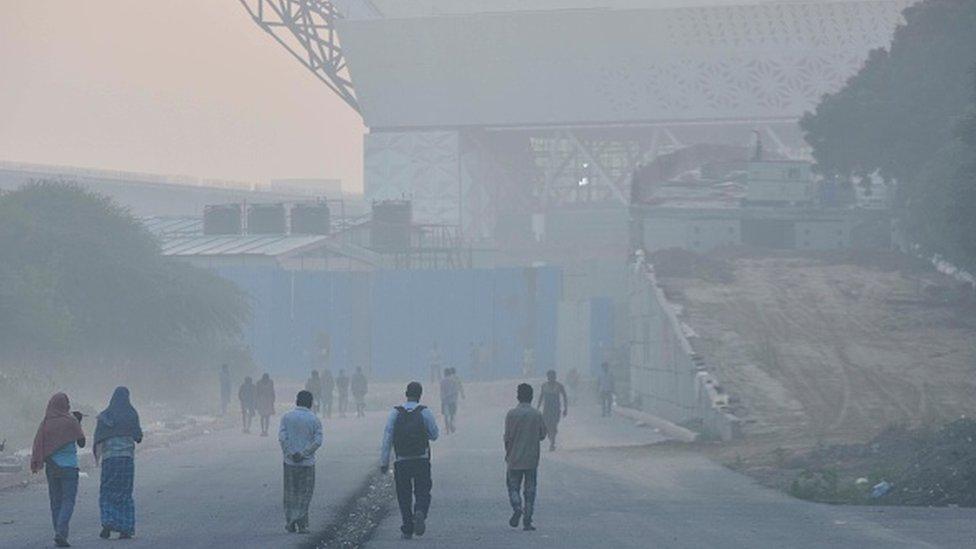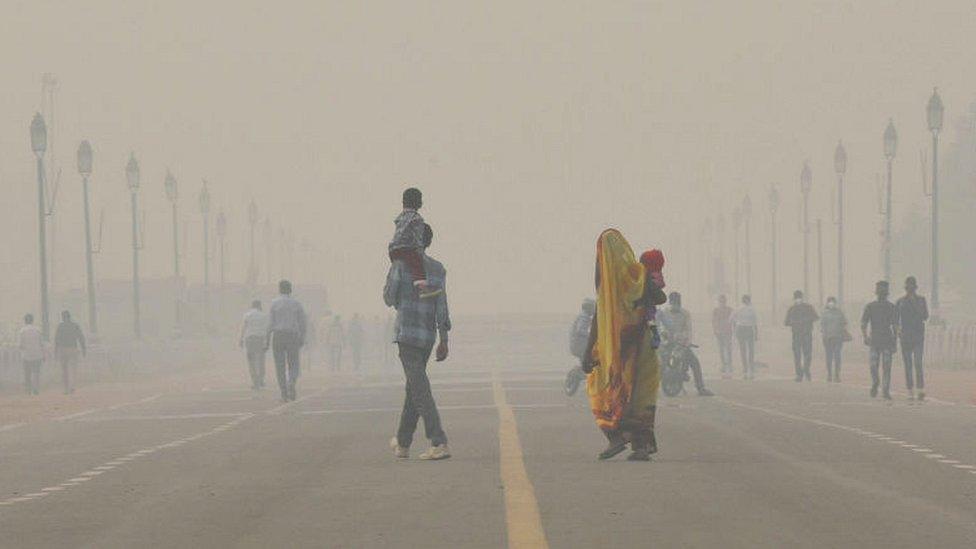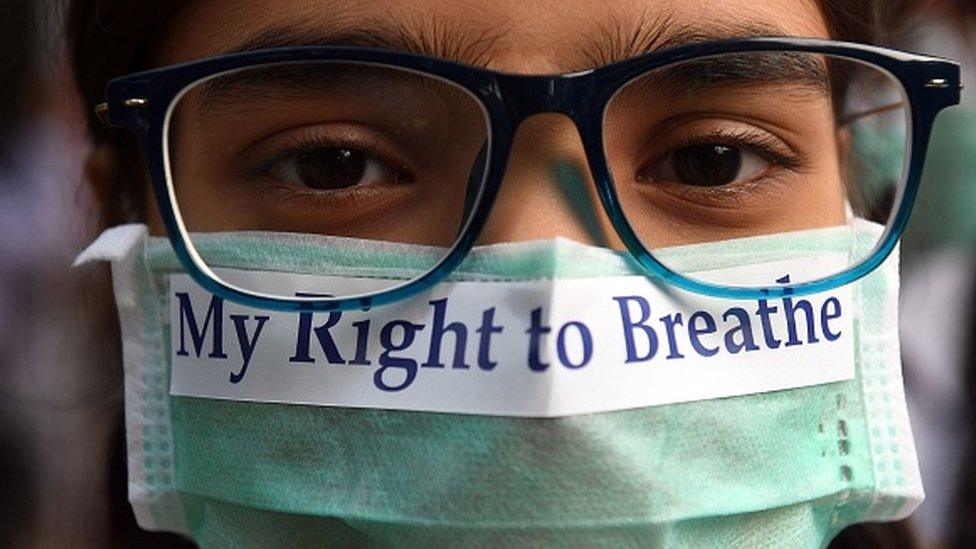Delhi air: Why India capital isn't choking despite Diwali fireworks
- Published

Delhi's air turns particularly toxic in winter
India's capital, Delhi, is experiencing "very poor" air on Tuesday, a day after the Diwali festival which is often marked by bursting firecrackers.
However, unlike recent years, overall air quality has not yet breached "severe" levels.
Experts attribute this to a mix of factors including favourable weather conditions.
Dust, weather patterns, traffic fumes and factory emissions make Delhi one of the world's most polluted cities.
Its air turns especially toxic in winter when farmers in neighbouring states burn crop stubble.
Fireworks during Diwali are also often blamed for worsening the air quality.
This year, the Delhi government had imposed a complete ban on the sale and use of firecrackers and also announced fines and prison terms for those caught breaking the rules.
But this didn't stop residents in many parts of the city from bursting crackers until late into Monday night.
That's why the better-than-expected air quality levels on Tuesday morning came as a surprise to many.
Most parts of the city recorded "poor" or "very poor" air levels - which, to be sure, can still significantly harm people's health in the long term - but didn't hit the "severe" category. Jahangirpuri in northwest Delhi was an exception, with concentration of PM2.5 - dangerous tiny pollutants in the air - at 999 per cubic metre, the maximum reading, according to air quality monitors.
A figure between zero and 50 is considered "good", and between 51 and 100 is "satisfactory", according to the air quality index (AQI). A figure higher than 500 is considered "severe".
Last year, the city had experienced grey skies and toxic air on the day after Diwali.
Jai Dhar Gupta, an environmental activist and entrepreneur, said the relatively better air this year had more to do with natural factors rather than pollution measures announced by the government.
"It's been an unusual season because we had rain till 15 October," says Mr Gupta, who is also a founding member of a citizens' movement for clean air. He also pointed out that Diwali was celebrated earlier than usual this year.
Stubble burning hasn't picked up speed yet in the regions near Delhi, external due to the prolonged monsoon.
Unusually high wind speeds have also helped disperse local emissions, including those from Diwali fireworks.
But crop burning is expected to increase in the coming days.
Northwest winds - coming from the neighbouring states of Punjab, Haryana and western Uttar Pradesh - will also pick up speed gradually, carrying smoke from stubble burning into Delhi, according to air quality forecast agency SAFAR.
This is expected to worsen air quality in the national capital.

Read more India stories from the BBC:

Related topics
- Published14 June 2022

- Published3 September 2021
